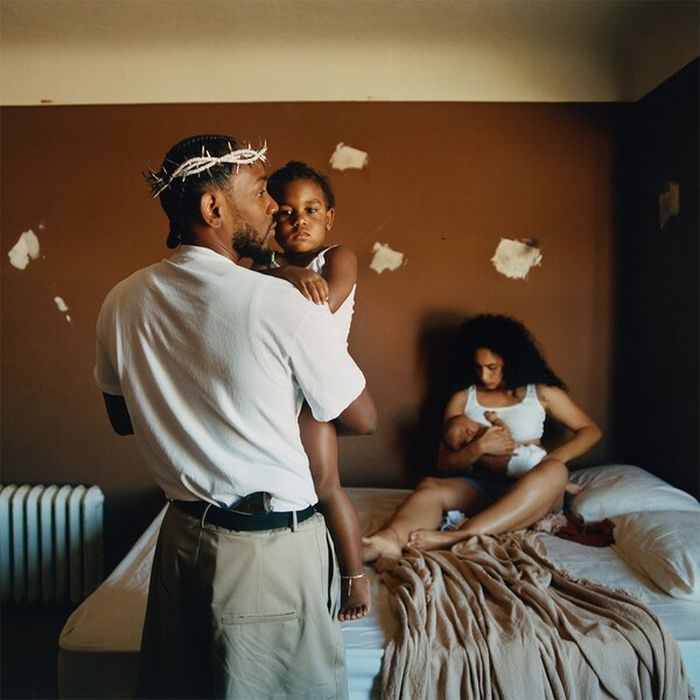Where is Frank Ocean?
Jabed Ahmed reflects on the enigmatic nature of Frank Ocean and considers its impact on the music industry

In a world full of influencers and celebrities there can be a need to keep the spotlight on you at all times, and this often leads celebrities to constantly look for any kind of publicity – having the media focus on all they do, say, and wear. However, there is notably one musician that has refused to conform to this trend: Frank Ocean.
Frank is a mysterious man who rarely participates in interviews, posts infrequently on social media, and releases projects years and years apart. Yet, somehow, he’s managed to catch the eye of the music industry with the world watching whenever he appears in public and fans documenting his every move. One of the key factors in Frank’s success here seems to be the mystery that’s shrouded around him due to his infrequent appearances in public and his even more infrequent release schedule.
Frank's latest Instagram post – his account has very few posts and each of them reveal very little about him, but despite this he still gathers over 1 million likes
The average artist releases a group of singles followed by an album, and tours relatively consistently with no more than two years between each project. Drake, for example, has steadily released music every year for the last decade. In this sense, artists try to keep their momentum constantly increasing in an attempt to stay relevant. However, this consistency isn’t always a great thing as fans get tired of hearing the same uninteresting music, leading artists to get burned out and further deteriorating the quality of the music released.
“His mysteriousness and inconsistency seem emblematic of his musical genius”
The presence of TikTok too has helped transform the music industry, becoming an essential marketing tool for musicians and record labels. Songs that have been out of the mainstream for decades can become viral hits out of the blue. Some music is even created specifically for the app, referencing pop culture and trends, effectively capturing algorithms. However, When the popularity of these artists eventually tapers off, everyone moves onto the next set of internet stars who will most likely face the same fate.
Frank, however, seems to buck this trend. He limits his appearances and makes sure to restrict the number of things he shares on social media, with what he does share typically being quite cryptic. Rather than killing his momentum, this actually serves to increase his popularity as fans (im)patiently await his next public appearance. As a result, he appears to transcend fame but also remain fundamentally relatable.
These prolonged absences are usually taken as Frank searches for new inspiration for his music. This falls into the observation that art imitates life. For Frank, these long periods of introspection are required for his music to have any significant meaning, and that is why his music is so outstanding. At the start of his career Frank moved to California to record and connect with Tyler the Creator which led to the release of his mixtape Nostalgia Ultra, followed by his debut album Channel Orange a year later. Following his meteoric rise, he disappeared again for four years, supposedly living in London while he recorded the critically acclaimed album Blonde. His mysteriousness and inconsistency seem emblematic of his musical genius as he combines the styles of R&B, soul, and psychedelic pop while communicating his story through his love for cars and fantasy comparisons. Each song is deeply personal, layered, and unique with novel instruments and samples as well as his vocal range portraying a multiplicity of emotions and providing a truly immersive experience.
“It seems listeners value quick dopamine hits over well-crafted masterpieces”
Instead of capitalising on his popularity, Frank chooses to live a secluded life away from the claustrophobia of living in the public eye. As a result of this, there is a great demand for him and his music, as is evidenced by the resale price of his merchandise and tickets to his shows. This scarcity only increases his popularity as fans scramble to get their hands on something as trivial as a magazine interview. Although this restricts his ability to become universally recognised, it contributes to his overall obscurity, and he remains an unsolvable enigma. This mystery has led to huge anticipation for Frank’s unknown third studio album. Besides the two singles that he released in the last couple years, little else has been revealed, leaving fans with next to no information.
Even if he were to release a new project, would it be appreciated? Kendrick Lamar’s new album is a great example of this. Despite the die-hard Kendrick fans praising the new project, it received little mainstream attention, highlighted by the relatively low album sales. This again points to the problems with the music industry as it seems listeners value quick dopamine hits over well-crafted masterpieces. With ten-second sound bites taking over, will Frank’s new music be admired by the masses?
Whatever his intentions, Frank’s story is symbolic of the counter-culture to seemingly identical pop artists, instead valuing time and quality over quantity – an attribute that more artists ought to have.
 Comment / Cambridge’s tourism risks commodifying students18 April 2025
Comment / Cambridge’s tourism risks commodifying students18 April 2025 News / Cambridge student numbers fall amid nationwide decline14 April 2025
News / Cambridge student numbers fall amid nationwide decline14 April 2025 News / Greenwich House occupiers miss deadline to respond to University legal action15 April 2025
News / Greenwich House occupiers miss deadline to respond to University legal action15 April 2025 Comment / The Cambridge workload prioritises quantity over quality 16 April 2025
Comment / The Cambridge workload prioritises quantity over quality 16 April 2025 Sport / Cambridge celebrate clean sweep at Boat Race 202514 April 2025
Sport / Cambridge celebrate clean sweep at Boat Race 202514 April 2025





